'Dartmouth wouldn’t be what it is': Oral histories celebrate Cape Verdean community
They are sharing their stories about life as part of a thriving Cape Verde community on Milton Street in Dartmouth to keep its history alive.
The collection of oral histories is called “Our Town/Nha Vida” or “Our Town/My Life.”
It was a challenge Jim Lopes eagerly accepted when he agreed to record the histories. He had never thought about the origins of his father's family and how they came to live on a farm in Dartmouth.
He remembers playing on the farm when he was a boy, and he remembers feeding the goats and the chickens and picking strawberries and vegetables.
“I remember being in the field with my grandmother and she was teaching me how to carry a basket on my head,” he said. “You load it up and carry it. I was just 5 or 6 years old.”
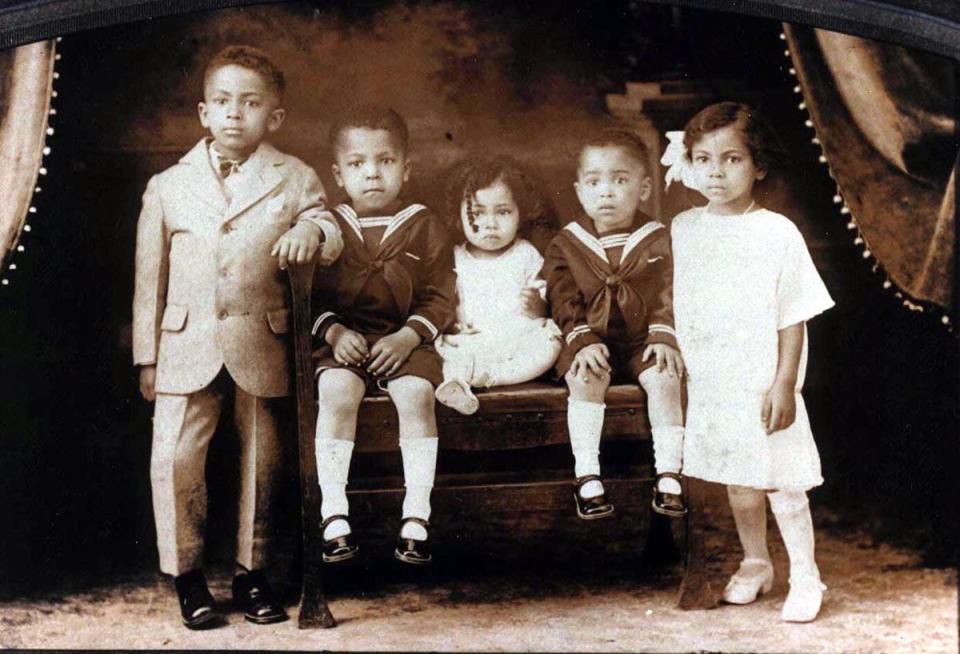
Lopes started off by interviewing Joseph Ramos, then in his early 90s, in the fall of 2021, asking him why his family moved to their home on Milton Street in the 1920s.
“He gave me a sense of the community that was there,” he said. “Everybody had their own farm and specialized in something, and he talked about all the sharing they did, how some farm specialized in goats and some had pigs, and how at harvest time they would all share. Everybody also gave a portion of what they grew or raised to the Cape Verde church in New Bedford, all giving free food there.”
Ramos also talked about the evolution of Milton Street as Lopes followed along on his journey into the past and was able to name every single family that lived on the street, both Cape Verde and Portuguese, all the way from Slocum Road to New Bedford. They were working-class farming families.
'He spread football all around Cape Cod:Fairhaven's Spanky Demanche gets another hall call
Demolition delay bylaw kickstarts project
When Susan Guiducci from the Dartmouth Historical Commission called asking about a house on Milton Street that was going to be demolished, he willingly agreed to research the house and talk to the people who had lived there. She didn’t know that his grandparents had been their neighbors.
Guiducci said the project may not have gotten off the ground if not for Lopes expressing interest and for his connections. She said what he and others have learned about life on Milton Street and elsewhere in town for Dartmouth’s Cape Verdeans is worthy of a documentary.
“The concern was that we would lose out on the story,” she said. “I think it’s important to have an oral history of that area.
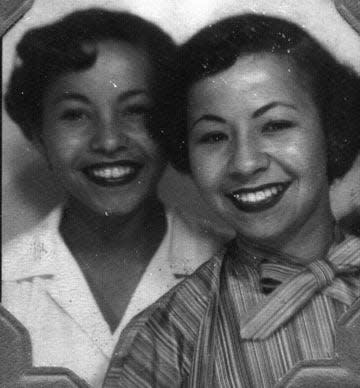
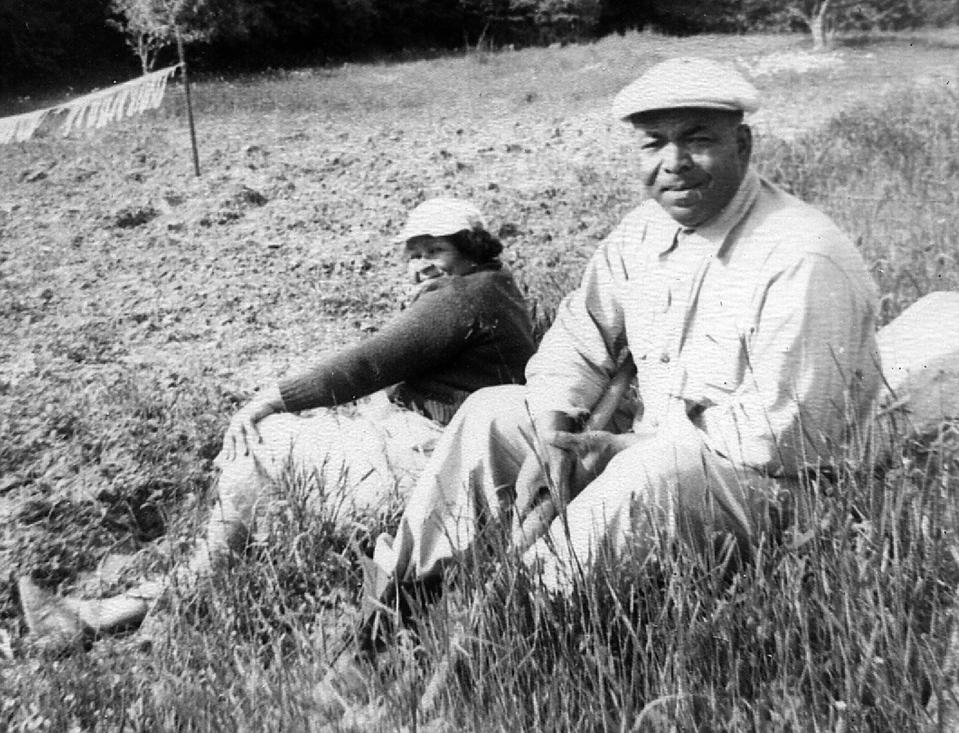
Lopes and Guiducci planned a meeting with Dartmouth’s local cable provider, Dartmouth Community Media, also interested in doing a program about the Dartmouth Cape Verdeans. He did five interviews with Dartmouth TV.
The Dartmouth Historical and Arts Society has also been working with Lopes to help get the word out about the oral histories and prompt curiosity about the Cape Verde community in town.
University of Massachusetts at Dartmouth Social Sciences librarian and recent archivist Sonia Pacheco was also present to talk about the university’s interest in an oral history project with Mass Humanities grant funding.
Learn about the people of Milton Street
Lopes and Pacheco will present “Oral Histories, Cape Verdeans in Dartmouth and Environs” to the public at 2 p.m. on Sunday, Feb. 5, at the Dartmouth Historical and Arts Society’s 1871 schoolhouse at 1205 Russells Mills Road in Dartmouth. There are 19 altogether.
Real estate:Enchanting cape steps from Sagamore Beach sells for close to $1M.
As the Visitor Services Supervisor at Fall River's Heritage State Park, Lopes is well known in the area as the innovator behind exhibits in the Visitor's Center highlighting local history. One of the exhibits he curated there is "Faces of Fall River," featuring photos by Lewis Hine of the immigrants that worked in Fall River textile mills.
For this project, Lopes said Guiducci researched land transfers to find out how it came to be that the community of Cape Verdeans settled on Milton Street because that was the question everyone was asking, and the answer was surprising.
The answer, he said, is that the town of Dartmouth actually sought them out despite it being predominantly white with a small Portuguese community.
“The town of Dartmouth invited those farmers in,” he said. “It wasn’t individual landowners selling to them. This was the Depression. The town of Dartmouth had seized people’s land for defaults on tax payments, and they invited Cape Verdean farmers to come in and settle there.”

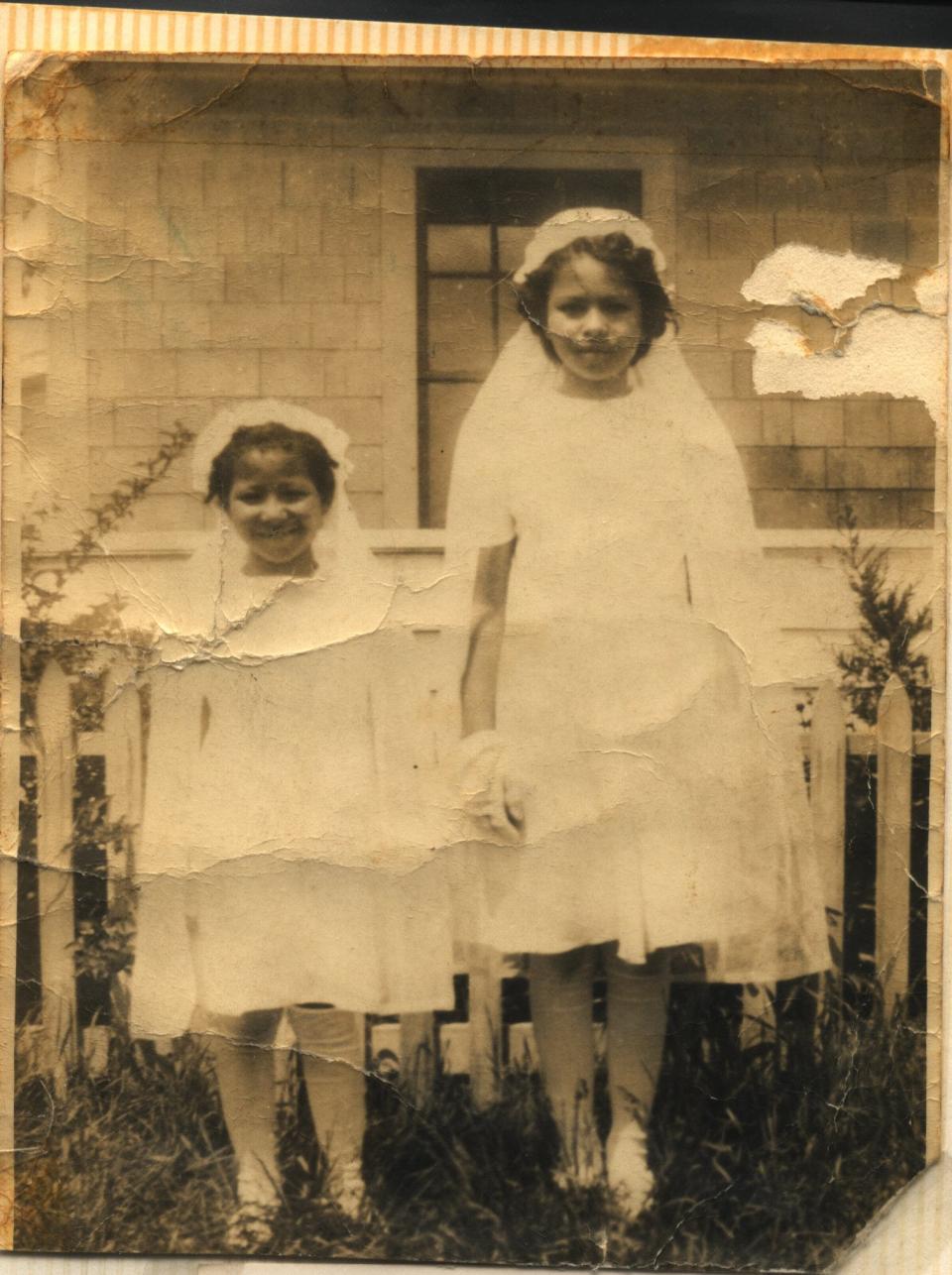
He said it’s historically the only section of Dartmouth that has people of color living there, and it’s adjacent to New Bedford.
The house was demolished about a year and a half ago, but his first two interviews were with men who had lived there. After Lopes, he interviewed Bill Do Carmo, also in his 90s, whose grandparents owned the house. He spent his summers there and worked the farm.
DoCarmo would watch the airplanes flying over Milton Street heading to the airport and decided he wanted to be a pilot. He was able to live his dream.
Ramos remembers getting new neighbors in 1923. Lopes’s grandparents were immigrants from the Cape Verde Islands, with his grandfather arriving here in 1914 and his grandmother in 1921, and by 1923 they owned property on Milton Street.
Lopes formulated a list of questions to ask everyone before going to the first interview, focusing on where their parents were from, what languages they speak, if they are bilingual and how they maintain their Cape Verde culture. Most of their parents spoke Cape Verde Creole.
“My grandmother did not speak English at all, and my grandfather was bilingual but spoke more Creole than English,” he said.
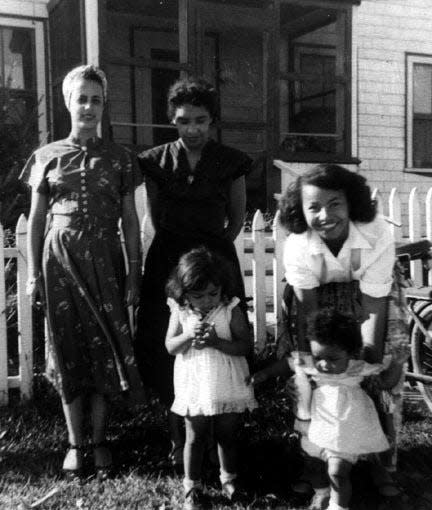
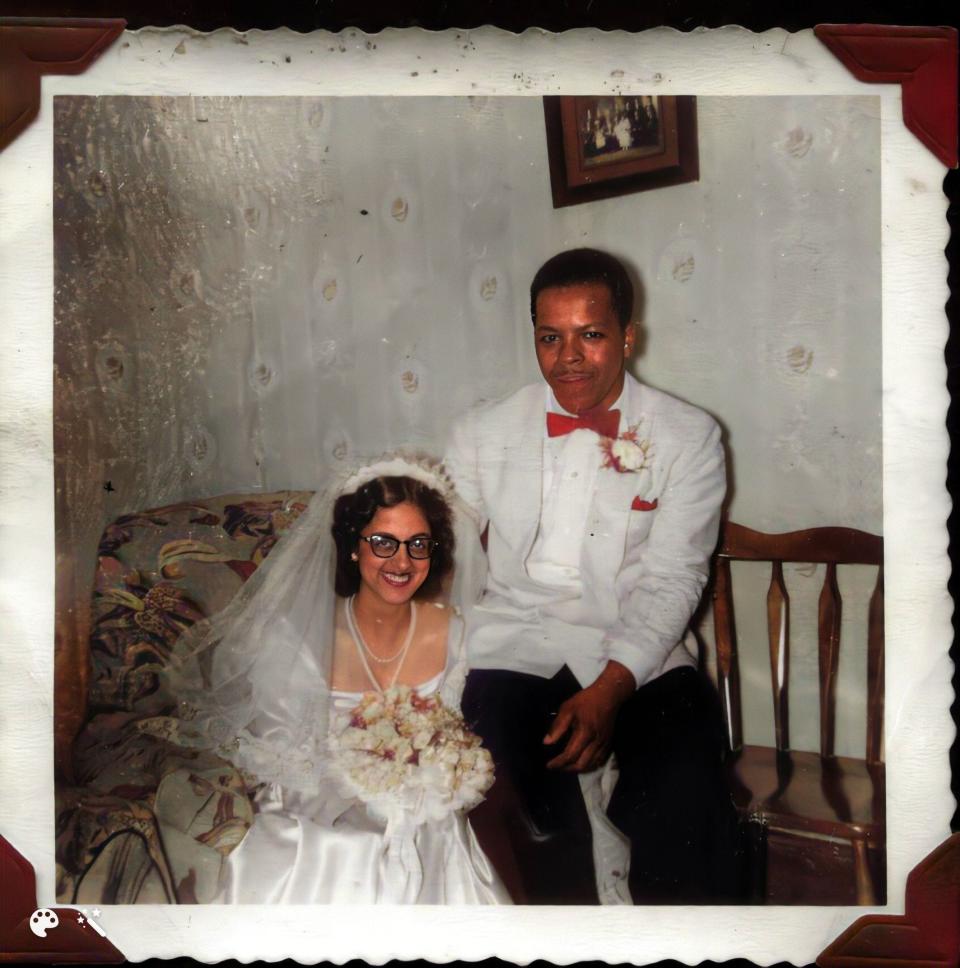
Lopes learned about class structure in Dartmouth, and he learned about how Cape Verdeans dealt with racism, some more than others, particularly the differences for girls and boys and different treatment for male student athletes who like his uncle Tony, felt he experienced less discrimination.
His aunt, Hilda, also grew up on the farm and talked about daily life with her family and happy days growing up in Dartmouth, as did his other family members he interviewed, but she also touched on some of the prejudice and racism.
“She said you were in a community — it's family, it’s home — but you go to school and find out you’re from the colored section, you’re from the poor section, you feel that,” he said.
Lopes said everyone he interviewed who grew up in Dartmouth with the exception of the younger people said they wouldn’t change it at all because where they grew up gave them the strength to deal with the outside world.
UMass Dartmouth contributes match
Pacheco has worked professionally with Lopes for about 10 years and had also been in contact with the Dartmouth Historical and Arts Society on a different topic, so when Guiducci told Pacheco about their work with the Cape Verde community, she was all in.
While the other connections were being made, UMass Dartmouth was discussing applying for a Mass Humanities matching funds grant. The university received a $35,000 grant and contributed matching funds for 20 oral histories. Pacheco said the purpose of the grant is to expand Massachusetts stories.
“They want to provide funding to institutions and individuals who are going to document the history of a community, a group of individuals, whatever the subsection may be that historically have been under-documented and underrepresented in Massachusetts,” she said.
Pacheco learned of the grant from Professor Emerita Memory Holloway, the Humanities advisor for the “Our Town/Nha Vida (Our Town/My Life)” project.
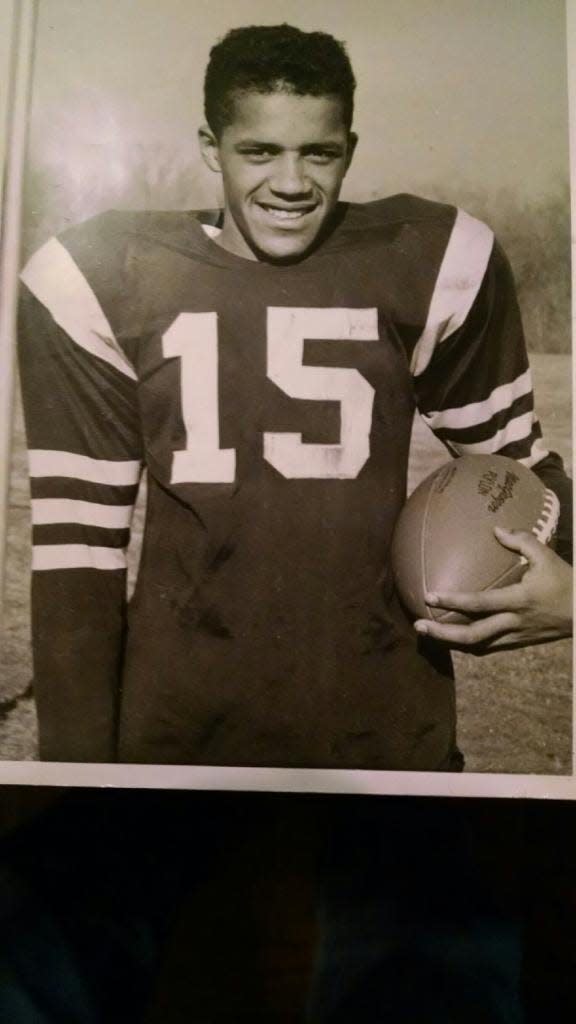
While the focus is on Milton Street, she said everyone in Dartmouth’s Cape Verde community made contributions to the way of life so everyone’s story matters.
“To me they’re absolutely critical to understanding the Dartmouth of 2023 and without knowing all the little pieces, and it doesn’t matter if the Cape Verdean community was made up of 50 or 100 or 250 people,” she said. “These were individuals who contributed so much to the town that Dartmouth wouldn’t be what it is today without them.”
Pacheco said building on the project so far may include programs on campus for students through the Frederick Douglass Unity House or the Cape Verdean Student Association and they will likely have Lopes on campus to talk about his experience as the lead interviewer while she speaks to the grant process.
The website for the project will go live once the final report has been submitted at the end of January. Lopes and Pacheco said further interviews will also be done if others want to share their stories.
“It’s been a fantastic experience, and I believe that we have a final product that the community and the public at large will absolutely learn from,” she said.
Lopes also interviewed celebrated rocker Michael Antunes, who grew up in Dartmouth with his family of musicians and was an original member of John Cafferty & The Beaver Brown Band.
“It’s a very talented music family, and they all grew up on Milton Street in Dartmouth,” he said. “This story started with this little house and then we talked about this community and all these fascinating, interesting people who’ve lived there. “
Standard-Times staff writer Kathryn Gallerani can be reached at kgallerani@gannett.com. Follow her on Twitter: @kgallreporter. Support local journalism by purchasing a digital or print subscription to The Standard-Times today.
This article originally appeared on Standard-Times: Farm life in Dartmouth suits Cape Verde community in 1920s

